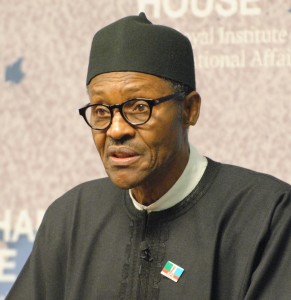 The United Nations Population Fund (UNFPA) on Friday advised the Nigerian Government to withdraw its reservation on the global reproductive health programme to enable citizens benefit from the policy. Ms Ratidzai Ndhlovu, the UNFPA Country Representative in Nigeria, gave the advice at the 2nd 2015 Population Technical Working Group (PTWG) meeting in Abuja. Represented by Mr Dasogot Dashe, the UNFPA Programme Analyst on Demography and Statistics, she advocated for the withdrawal of Nigeria’s objection to two targets of the Sustainable Development Goals (SDGs). The UN official noted that Nigeria had expressed reservation on targets 3.7 and 5.6 of the the SDGs. The News Agency of Nigeria (NAN) reports that the SDGs target 3.7 is seeking to ensure universal access to sexual and reproductive healthcare services, including family planning and reproductive health integration in all member states.
The United Nations Population Fund (UNFPA) on Friday advised the Nigerian Government to withdraw its reservation on the global reproductive health programme to enable citizens benefit from the policy. Ms Ratidzai Ndhlovu, the UNFPA Country Representative in Nigeria, gave the advice at the 2nd 2015 Population Technical Working Group (PTWG) meeting in Abuja. Represented by Mr Dasogot Dashe, the UNFPA Programme Analyst on Demography and Statistics, she advocated for the withdrawal of Nigeria’s objection to two targets of the Sustainable Development Goals (SDGs). The UN official noted that Nigeria had expressed reservation on targets 3.7 and 5.6 of the the SDGs. The News Agency of Nigeria (NAN) reports that the SDGs target 3.7 is seeking to ensure universal access to sexual and reproductive healthcare services, including family planning and reproductive health integration in all member states.
The SDGs target 5.6 is seeking to promote universal access to sexual and reproductive health and reproductive rights for citizens of the member countries. Ndhlovu therefore urged the federal government to adapt the targets as a means to delivering improved healthcare services. She explained the SDGs were adopted by UN member nations after a wide consultation to impact on the lives of citizens through a 17-goal mechanism. According to her, some of the goals include ending of poverty and hunger, improving and provision of quality healthcare and education, water and sanitation, sustainable energy and resilient infrastructure. Others were gender equality and empowerment of women and girls, safe cities and settlements, sustainable production and consumption, combating climate change, conservation of marine, oceans and sea resources, promotion of ecosystems, biodiversity and halt degradation. Besides, the envoy said that a strong partnership was being evolved to ensure that the goals were effectively implemented, monitored and evaluated. “If Nigeria withdraws her reservation on the two targets, the country will get maximum value for Naira,’’ said Ndhlovu. (NAN)
Source:Leadership Online






